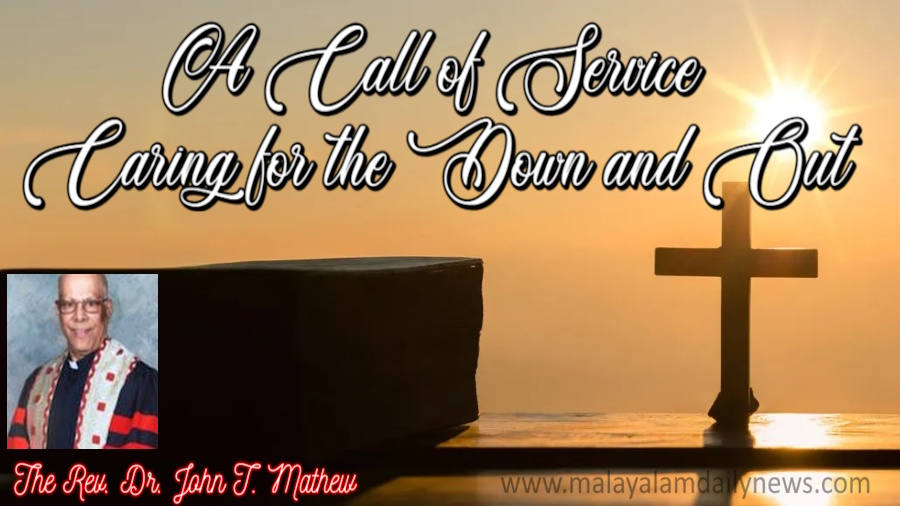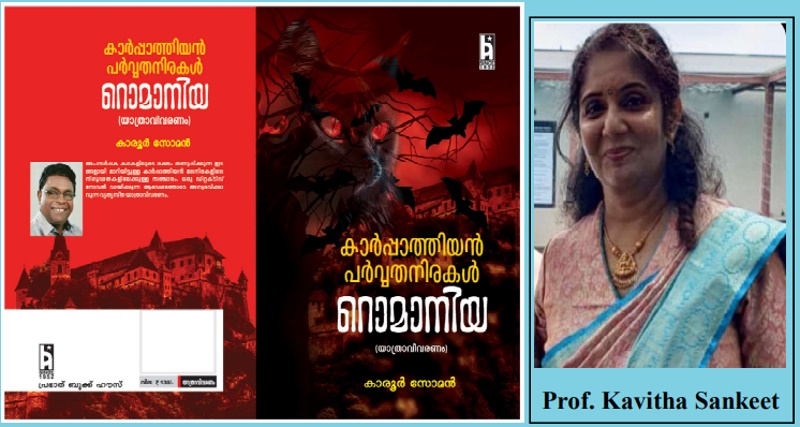 It all started off in my salad days, when the word ‘mission’ warily evoked in me an outlandish aura about something atypical albeit it refers to many things to many people in and outside the church.
It all started off in my salad days, when the word ‘mission’ warily evoked in me an outlandish aura about something atypical albeit it refers to many things to many people in and outside the church.
IBM has its mission to be a catalyst that makes the world work better. GM Canada stands together to drive the world forward. My first college claims ‘To mould students into well-meaning citizens of the nation through a socially committed, intellectually inclined, culture driven and future oriented paradigm of learning’. Next one asserts to educate students to become socially conscious, ethically responsible, and globally competent leaders.
And for sure, I was all set to be part of seven Divinity Schools on both sides of ‘The Pond’ with such Pollyannaish distinction. First school had a mission to prepare people for ministry and mission through theological education and training. Second school reminded me ‘We stand on a history of strength but are unafraid to challenge assumptions of the past’. Next one ‘prepared students to be leaders and engaged citizens through educational excellence’. Another one with a ‘mission is to advance new ideas and promote enduring knowledge’ followed by a research center that ‘convenes researchers in an ideal setting for interdisciplinary inquiries where theology casts light on global concerns, and shares our findings to inform public thinking’. The mission of the last two schools was analogous ‘to promote equality, diversity, and an inclusive culture.’
Over the past two millennia, denominational traditions helped adherents to figure out who they are and where they fit in ecclesial ethos. Originally the apostles had a roadmap for sharing the Good News and creating communities of faith that sustained the church’s self-recognition. The fledgling spiritual group that began in its Palestinian cradle benefited from the imperial recognition to become a powerful presence in the wider world.
This certainly is more a reformist than a revisionist project to get to the source of Jesus’ sending of his disciples. He announced his mission repeating the words of prophet Isaiah at the synagogue: “The Spirit of the Lord is upon me, because he has anointed me to bring good news to the poor. He has sent me to proclaim release to the captives and recovery of sight to the blind, to set free those who are oppressed, to proclaim the year of the Lord’s favor.” Therefore, our task is to engage the global church, examine its underpinnings and theological guidelines of principles of his mission.
Once an African student and I were guests at a local home. The tactful host hinted how fortunate we were while he tried to plate the benefits of the Scottish mission across the globe. Dreadfully ignorant of my first-century Apostolic pedigree, he tried to obfuscate the evils of Colonialism and how the missionary zeal strengthened imperial objectives. When he learnt that I wouldn’t be a supine applauder of foreign missionary charity, our newly made friendship halted.
A ‘foreign minister’ is not a foreigner; but a foreign missionary is a foreigner! Nevertheless, Murphy’s law prevails. E. Stanley Jones and Mother Teresa, like several others, were inimitable trailblazers. Primarily the foreign mission algorithm goaded to get the natives to welcome and appreciate the imperial agenda of the oppressors to plunder, pillage and reduce the indigenous ways of life to rubble.
A desire to respond to Jesus’ calling to serve and care for others is noble. However, everything in this life has a dark side as we are no different from others. For sure, hundreds of thousands of conscientious disciples diligently served the global church. And yet, the need to reexamine the mission paradigm rises out of a genuine need to search for a more perfect model.
Whether 12 or 70 or 72, the Gospel narratives inform us that several times Jesus sent out his disciples to a violent, unjust world. They were sent out with a specific task, on a holy expedition with power to push the evil spirits out, fortified by his words of caution: “I am sending you like lambs into a pack of wolves”.
Grateful for the missionary swath that covered most of our planet over the last two millennia: Virgin Mary, Mary of Cleophas, Mary Magdalene, the Apostles, Mark, Luke, Paul, Forty Martyrs of Sebaste, Amy Carmichael, Amy Judson, Esther Ahn Kim, Harriet Tubman, Susanna Wesley, William Carey, Ida Scudder, Albert Schweitzer, C. F. Andrews, Mother Teresa, E. Stanley Jones, David Livingstone, Hudson Taylor etc. who shared the Good News to
“thy church, unsleeping
While Earth rolls onward into light
Through all the world, her watch is keeping
And rest not now by day or night”. [Clement Cotterill Scholefield]
Whimsically ‘mission’ is a common term every so often used in the former colonies for bridges, businesses, churches, hospitals, hotels, schools, cemeteries etc. with utterly little to do with our current topic of discussion! The term ‘mission’ from the Latin ‘missio’, act of sending, was introduced by the Jesuits in the 1590s. Karl Hartenstein in 1934 coined the term “Missio Dei” to discern the mission of God apart from the mission of the church or ‘missio ecclesiae’.
The legacy of ‘foreign mission’ initiated by the European churches has its chequered past with both caringly constructive as well as dismally destructive to the native ways of several cultures. The process of unearthing the tragic facts of cruelty towards children and women in Canada is still going on.
The birthplaces of all major faith traditions are in Asia; however, in particular, many still have the wrong impression about the unfamiliar bearers of the Good News! Europe had little to do with it until the emperor welcomed it to his spiritually starved hinterland in the fourth century. A Hellenized familiarity of a new faith awkwardly metastasized to other parts of the church soon after the emperor formally welcomed the fledgling movement of the Good News ushered in by Jesus of Nazareth.
We, the 21st century disciples, believe in and live by the principles of Jesus’ calling. Although we have authentic accounts of the life and work of the first disciples, it is hard for us to imagine how the first-century followers adhered to this commission. The European crusades and imperial colonialism are both blurring and dismal examples of such a pilgrimage.
Instead of responding or retaliating to the medieval European mission prototype, it is helpful to re-examine the example of Jesus’ sending the disciples into neighbouring towns. In other words, a divergent theological thinking is required to address the issue.
What we have in the Gospel narratives is a template; our blueprint is not necessarily a search for a mission paradigm. Instead of straining to reinvent the wheel, the church could do well by salvaging the archetype to connect with people in our day and age.
In the 1960s, the global church had fallen into a nosedive and in the 1970s a spectacular flameout. Moratorium on foreign missions came into effect that led to the thing called partnerships. Imagine 16th century Europeans empowered to claim ‘first dibs’ on the regions of their choice as their ‘mission field’ in order to ‘colonize’ allegedly with the help of the Good News of Jesus!? The impervious ancient Orthodox Church was the only roadblock they had as the naïve and docile communities of faiths either ignored them or willy-nilly surrendered.
The former Christendom has been cratering soon after the post-WW2 surge of prosperity Gospel and capitalist boom in the affluent nations. John Gatu demonstrated immense audacity to escalate a theological global showdown with the European imperialistic mission strategy. His call for moratorium called for a complete halt in the sending of and funds from European and North American churches to African churches. He encouraged the African churches to develop their own identity and to define their mission for their time and place. Such a cultural crackdown was long overdue as nearly all foreign personnel chose to play a self-appointed role of a boss or saboteur.
Whatever happened to our ‘Blessed Assurance’ blind hymn writer Fanny Crosby who got the global church to belch out for the past 152 years?
‘This is my story, this is my song
Praising my Savior all the day long
This is my story, this is my song
Praising my Savior all the day long
Praising my Savior all the day long’.
For sure still we hum such uplifting hymns. It was a tectonic rejuvenation when I was pulled up from my syncretic spirituality, an ancient scrambled liturgy marinated in watered-down Anglican rubrics and tossed to John Knox’s anti-Roman Pictish version of their newfound faith. I attended the Kirk at first, suddenly I kind of thought something was missing. We are prone to ignore what is present when we pine for what is absent such as candles, incense, lingering liturgy, as if we are in the company of Moses before the burning bush or Isaiah in the smoke-filled temple.
There I got a rare opportunity to get to know the ambiance where traditional missionaries were spawned in the womb of fading European Christendom. To my amazement, following my theological studies, the church encouraged me to become a ‘missionary’ to my home turf! I had no one to turn to gain another perspective on this incredible offer to serve the church with all its perks and eventually return to Scotland to enjoy my autumn years donned in a kilt sipping single malt to gorge haggis served with neeps (turnips) and tatties (mashed potatoes). Frightfully flustered and yet hugely grateful, I turned it down. Over the decades, I have retraced that lonely inner turmoil asking myself: Did I make a sound decision? Yes; I refused to perpetuate centuries-old colonial abuse of the Good News of Jesus where many missionaries were promoted culpable partnership with imperial hegemony to accomplish its ‘holy grail’.
Whenever I come across a new ‘invite’ on the social network, I look for intellectual, social, cultural, professional activities. Regrettably, some flex their muscles, show off a new clunker, new trinkets, or buck-naked body parts etc.
Such locker room displays happen in fanatic religious displays. ‘My swanky God is awesome’ similar to ‘my dog is a Great Dane and yours is a Chihuahua mut’ or ‘your prelates swagger more glitzy and tacky outfits while our priests wear Gandhian diapers’.
Several former missionaries were apologetic and remorseful that they embarked on their quixotic overseas career as ‘missionaries’ with no theological or spiritual preparation whatsoever. Awfully mortified, my old classmate returned from Ivory Coast where he was a missionary for twenty years soon after High School; suddenly, theologically clueless he began his basic theology training for the first time!
Far more than a hackwork, as one of the first in my newfound mission-sending denominations in the Reformed heritage, I explored what God’s mission through Jesus and apostles were all about at the Institute of Mission Studies, St. Paul and Ottawa Universities. Therefore, my take on a search for a mandated mission paradigm for our day and age is sincere or without wax.
Each generation must rediscover, redefine and reclaim the faith of our mothers and fathers in God. An inbred faith is always pragmatic and consequential. Potent and yet dreamy, King Canute tried to command the waves. Here we attempt to jog our collective memories of tides of historic mission paradigms in order to recapture a meaningful model for our day and age.
For sure, it is easier to rehash the mumbo-jumbo like a man who claimed, “I am a Christian because I was born in Scotland”. Another suspected, “You must be a Hindu because you were born in India”. They both were stunned with my reply, “I am neither Christian nor Hindu because I am a Nasarani”. Admittedly, place of birth or citizenship has little to do with one’s raison d’ être to believe in and belong to a community of faith.
A bona fide yearning to investigate the scriptural mandate initiated by Jesus being practised by his followers has taken a number of expedient as well as distorted detours. All through such throbbing crises, disillusioned faithful either negotiate, navigate or cut loose. Such investigative soul-searching itself has become a ‘mission’ to weigh up, investigate and remedy has become an exceptional ‘mission’ to rescue the original purpose of our mandate. For that reason, willy-nilly, as Jesus cautioned us, we live in our raging AI age but ‘we are not of the world’. We find ourselves in a paroxysmal fight or flight, theological, or better missiological mess.
We must embark on a leading edge, futuristic, trailblazing search for a red-hot prototype that is relevant and at the same time faithful to Jesus’ original charge.
Admittedly there exists a yawning Yarmouk, a sacred chasm between Jesus’ perception of sending his disciples to live and share the Good News for and among the people and the colonial imperial ‘divide and conquer’ kind of intrusion using the Gospel manifesto. Many followers of Jesus claim to own up a ‘concern for the mission of the church’; in fact, we forget that Jesus commissioned us to be part of God’s mission for God’s creation.
Almost everything done by the foreign personnel in the global church both constructive in education and healthcare and the counterproductive scandals, abuse of the vulnerable (Indigenous Residential School Scandal Still Rocking Canada’s Self-Image!) children, help smuggle Kohinoor, patronizing attitude of church leaders like William Temple have backfired and energized leaders like John Gatu’s call for moratorium on the century-old missions that overstayed its welcome. And we must bristle at such reprehensible realities of our religious baggage where the church had inexcusable complicity. Certainly, such inhuman memories drove up the global church to de-Romanize and de-Hellenize the Good News of Jesus.
The former sending denominations have never looked in the rear mirror to own and repent the destructive impact of the imperialist impulses that subtly galvanized them to keep going as if they were divinely honed. An effectively evocative writing culture is a cornerstone for those who are engaged in teaching and those who pursue their studies in all disciplines especially in religion. Our institutions are undergoing inescapable makeovers and the faithful are disillusioned by the leadership.
When pellucid perspectives whip up our imaginations, it helps to change our minds often for the better; it is imperative that we do our best to see – everything – the world in and around us in a new light. Suddenly a clearer realization of reality helps us to regard others with genuine appreciation.
It is one thing to be born and bred in one traditional belief and totally another to begin to have reservations about the dogmas and views we grew up with. Whatever we once believed to be ‘orthodox’ was not quite ‘orthos’/right and valid.
It is refreshing for me to return to groundbreaking years as well as an interval of time when I reviewed a variety of paradigms of missionary ventures. In the early 1960s Thomas Kuhn created a game changer known as ‘paradigm shift’ to enlighten a systemic change that replaces a dysfunctional perspective. This now is the ‘call within a call’ for the church to renew ourselves as co-workers of God’s mission for God’s creation.
[The Rev. Dr. John Theckekolathu Mathew is an ordained minister in The United Church of Canada. Besides serving several urban and rural congregations in the province of Ontario, Canada since 1975, he also taught in the Department of Religious Studies, Huntington/Laurentian University, Sudbury, Ontario. Mathew was awarded the Merrill Fellowship at Harvard University Divinity School; he was Pastor-Theologian at the Center of Theological Inquiry, Princeton, NJ. He served at St. Machar’s Cathedral, Aberdeen (Church of Scotland) as Ecumenical Guest Minister and Interim Minister in the Presbyterian Church of Aotearoa New Zealand.]




